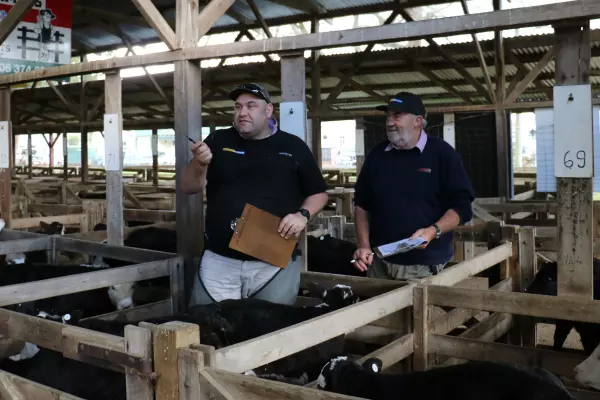Breakthrough on climate change policy as Nats support Zero Carbon Bill

The National Party has allowed an important breakthrough on climate change policy by throwing its weight behind the passage of the government's Zero Carbon Bill, which is expected to pass into law today after a lightning-fast process since its second reading debate on Tuesday.
National is promising to make changes to the law in seven areas, if it is elected to lead a government, within its first 100 days. The most important change would be to unpick the target to reduce methane emissions from farm animals by 24-47 percent by 2050, which critics believe is unachievable.
However, party leader Simon Bridges told parliament in the third reading debate today that National would "work with the government to make meaningful bi-partisan progress on climate change."
"The prize is too great not to try," he said.
The Climate Change Response (Zero Carbon) Amendment Bill sets the legal framework for the establishment of an independent Climate Change Commission that will monitor and advise on New Zealand's progress towards the net-zero carbon emissions target it signed in the 2015 Paris accord and from which the United States formally withdrew overnight.
Without cross-parliamentary support, there were fears, in the business community as much as among environmental organisations, that flip-flops on climate change policy would continue and blunt national efforts to combat the global issue.
Bridges said National was committed to "practical, sensible solutions that don't punish everyday New Zealanders in the process," with policies based on science and seeking innovations and technology to help reduce greenhouse gas emissions.
Prime Minister Jacinda Ardern said the parliament should be proud of the bi-partisanship achieved and pledged that New Zealand "will not be a slow follower" of other countries' efforts "because, quite frankly, we cannot afford to be" given New Zealand food producers "trade on our brand and our name."
The bill's sponsor, Climate Change Minister and Green Party co-leader James Shaw, said the compromise required by all parties was an essential part of achieving a cross-parliamentary consensus.
"Compromise should not be a dirty word in politics," said Shaw, who was accused of "selling out" on agricultural emissions reductions by his predecessor, Russel Norman, now leading Greenpeace New Zealand.
"I believe with all my heart" that bi-partisanship is vital to action on climate change, said Shaw, who dedicated the law's passage to a nephew born this morning.
Shaw had created a legacy "that will not be undone", said Ardern, who thanked National for supporting the legislation.
National front-bencher Judith Collins, who had threatened to cross the floor of parliament and vote against the bill even if National officially supported it, fell into line, content to promise National would amend the law in ways that would "make it sensible."
National is promising changes in the following areas: a reduced target for biological methane emissions via the independent Climate Change Commission; enshrine the Paris Agreement's recognition that food production should not be threatened by emissions reduction action; stronger provisions that consider the level of action being taken by other countries to allow New Zealand to stay in step; more ability for the commission to consider economic impacts of reducing emissions; greater recognition of crops, riparian planting and other farm biomass alongside "the appropriate use of forestry offsets"; a 'split gas' approach to methane and CO2 emissions; and more research and development commitments.
Comments











